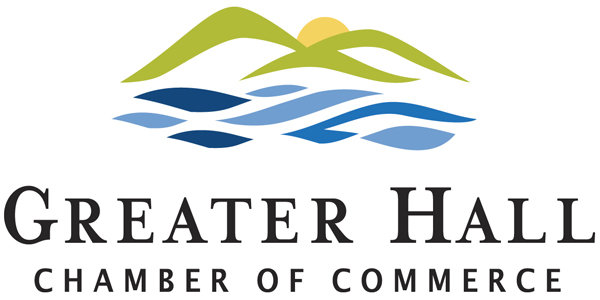The other day my 8-year-old daughter twisted my arm into playing Monopoly. “Come on, Daddy. It’ll get your mind off work,” she said. Sounded good to me. My new role as Chamber chair sure has been hectic.
“Okay, Ella, pay up. You just landed on my Park Place. Oh, and look, I’ve got four houses on that space. You’re in trouble now.”
“Wait a minute, Daddy! How did you do that?”
“Simple, my dear. I’ve got sewer.”
“Huh? I don’t remember that in the rule book.”
“Sure, honey. It’s right there under the section about owning your own water department, and I also happen to hold those cards, too. Sorry. Now pay up.”
“Daddy, you can’t do that!”
“Yes, I can. You’re just too young to understand this game.”
“No, Dad, you don’t understand. You’re violating Monopoly zoning laws – that’s Rule No. 33-B. Plus, Park Place sits on an upward gradient, so your cost to run sewer, plus adding on construction for pump stations, is way too exorbitant to justify an expenditure of that magnitude. I believe you owe me a big impact fee. . . . Daddy? What are you doing?”
“I’m going to Jail. Don’t forget to write, sweetie.”
* * *
Understanding the sewer scenario in Hall County can be about as complicated as a kid – or a grown-up Dad for that matter – trying to make sense of a new board game with 500 pages of rules. Along those same lines, our Chamber Board of Directors recently was asked to endorse the construction of sewer lines up Highway 53 in South Hall and (the most controversial part) down Highway 211.
We, including me, voted in favor of the resolution. But it certainly was not a black-and-white decision. For example, there are several other plans waiting in line, the most notable being sewer up the 365 connector in North Hall – a proposal that is part of our Chamber’s own business plan. For me personally, I had concerns about the impact on Eagle Ranch, one of my favorite non-profits for children, as well as the rural nature of the surrounding area.
But you’ve got to look at the big picture as they say, and that’s exactly what your Chamber did on behalf of all of our members. Our due diligence included a “sewer summit” held last year as well as our more recent discussions at various committee levels.
>From all that, here are the primary reasons why the Chamber Issues Committee, Executive Board, and Board of Directors voted in support of the Highway 53/211 sewer resolution:
Protection of our future water resources. This is perhaps the biggest reason to support sewer in South Hall. Our county is currently restricted from withdrawing more than an average of 35 million gallons a day from Lake Lanier. But when we pump treated wastewater back into the lake, we receive credit toward the amount of water that we can use. Extending sewer down 211 would allow us to capture and treat wastewater for Lanier that otherwise would flow into a separate water basin.
Most affordable option in short term. Although the Chamber supports sewer construction up Ga. 365 in the near future, this option would be more costly to build in the short term. Based on proposed development around the 211 corridor, primarily due to its close proximity to Atlanta, the majority cost of sewer construction could be shouldered by tap-on fees to customers and revenue bonds (which are paid back by users).
Less costly construction. The low elevation along Ga. 211 – the Mulberry River in that area is one of the lowest points in Hall County – provides a further cost incentive. It’s much cheaper for sewage to flow downhill than to build pump stations to push it uphill.
Timely road construction. The Georgia DOT is conveniently planning road-widening projects in the area that will help in laying sewer lines.
Opportunity for a new industrial park. Land already has been earmarked in the area as a potential site for a new industrial park, which is greatly needed for new industry recruitment and a boost to our tax base.
Better for the environment. With heavy development in South Hall follows a growing number of septic tanks and environmental problems, which can best be handled by sewer.
The Greater Hall Chamber has been consistent in promoting sewer for South Hall for the past ten years, a position backed by the state Environmental Protection Division and the Metropolitan North Georgia Water Planning District.
In the long run, it is hoped that we can use sewer in South Hall to give our commissioners more control over balancing our tax base with commercial and industry growth along with quality residential. Even a simple businessman like me can understand that. Now, if I can just figure out how to run sewer to my Monopoly board . . .
